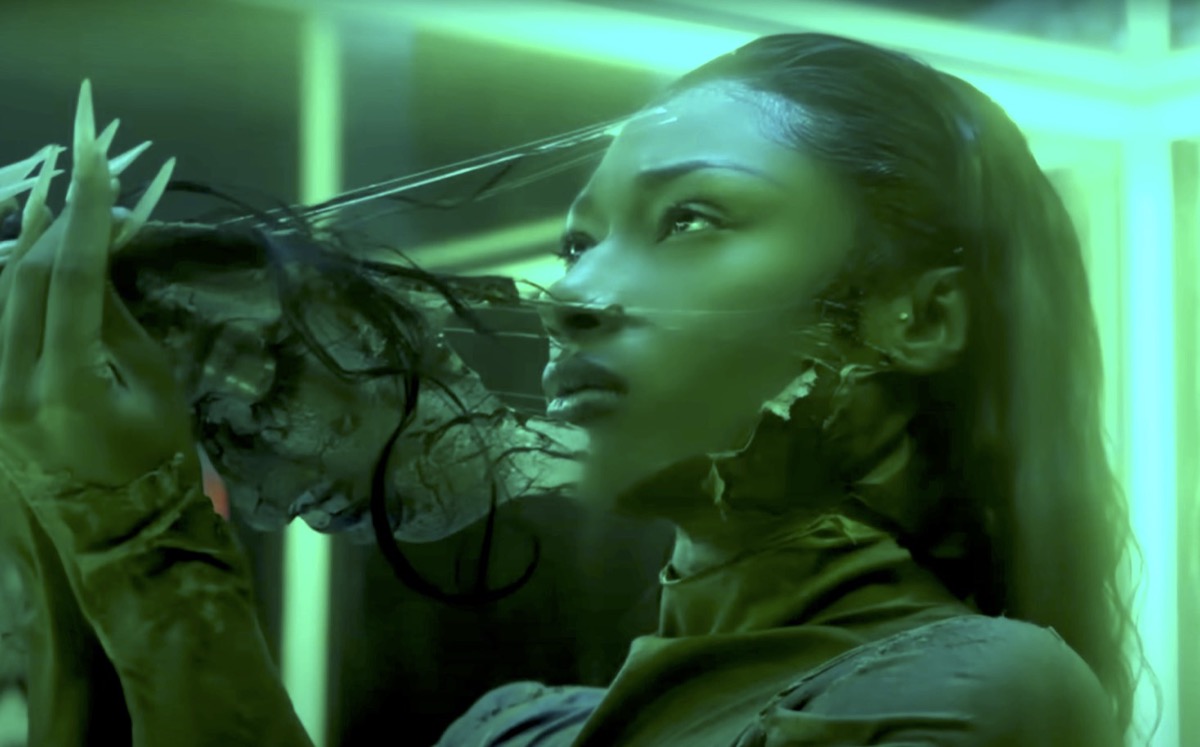Megan Thee Stallion’s Exploration of Grief, Depression in ‘Cobra’ Continues To Resonate
"This pussy depressed."


“Yes, I’m very depressed. How can somebody so blessed wanna slit they wrist?” raps Megan Thee Stallion in “Cobra,” the multihyphenate’s latest hit single, released on November 3 to promote the artist’s first release as an independent artist and third studio album.
A little over a month after the song’s release, Megen Thee Stallion’s decision to rap about her experience with depression and suicidal ideation is still resonating, demonstrating how celebrity disclosure can facilitate the reduction of stigma through social modeling.
Megan Thee Stallion is very open about her mental health. In her second studio album Traumazine (2022), she raps about complex emotions following multiple traumatic life events, including the deaths of her mother and grandmother in 2019. To coincide with the album’s release, Megan debuted merchandise with sayings like “bad anxiety” aimed at destigmatizing mental health and launched the website Bad Bitches Have Bad Days Too, which includes links to free therapy organizations and other mental health resources like helplines and resource directories for organizations that specifically support Black women and members of the LGBTQ+ community.
As she did in the single “Anxiety” from Traumazine, Megan once again describes her emotions in “Cobra,” explicitly rapping about her continued mental health struggles following several family deaths, people denying then making fun of Tory Lanez shooting her in 2020, and more. The song’s lyrics describe in detail (in fact, perhaps in more detail than ever before) her anxiety, depression, thoughts of self-harm, and general experience related to the challenges she has faced:
Never thought a bitch like me would ever hit rock bottom, man, I miss my parents, way too anxious, always cancel my plans… Lord, give me a break, I don’t know how much more of this shit I can take.
Even “Cobra,” the name of the single, has meaning. Megan explained on social media that cobras “exemplify courage and self-reliance,” standing “tall and fierce in the face of challenges, teaching one to tap into their inner strength and rely on oneself to conquer their threats.”
In 2021, the Centers for Disease Control and Prevention reported that over 48,000 Americans died of suicide, making it the 11th leading cause of death. That same year, 12.3 million adults seriously considered suicide, 3.5 million adults made a plan, and 1.7 million adults attempted suicide.
Some groups have higher suicide rates than others. Relevantly, as long as the CDC has collected data on suicide, it’s reported that Black women and girls are the least likely to end their lives out of all demographic groups, a phenomenon dubbed the “suicide paradox.” According to a 2017 study, Black women often dismiss suicide as an option because of “their levels of responsibility and commitment to others” (including Megan Thee Stallion, who has talked about the challenges of growing up Black with depression).
In her 2015 book Negroland: A Memoir, Margo Jefferson wrote about these feelings:
One white female privilege had always been withheld from the girls of Negroland. Aside from the privilege of actually being white, they had been denied the privilege of freely yielding to depression, of flaunting neurosis as a mark of social and psychic complexity. A privilege that was glorified in the literature of white female suffering and resistance. A privilege Good Negro Girls had been denied by our history of duty, obligation, and discipline. Because our people had endured horrors and prevailed, even triumphed, their descendants should be too strong and too proud for such behavior. We were to be ladies, responsible Negro women, and indomitable Black Women. We were not to be depressed or unduly high-strung; we were not to have nervous collapses. We had a legacy. We were too strong for that.
Despite all this, one study found that between 2001 and 2017, fatal suicide rates among Black girls aged 13 to 19 rose 183 percent. Likewise, The Nation reported that suicide rates for Black women aged 25 and 44 increased by 72 percent between 1999 and 2019.
With this new group of at-risk Black teens and women, there must be prevention campaigns targeted specifically at the demographic. It’s well known that education about mental health and access to resources where one can have an open discussion about thoughts of self-harm or suicidal ideation are key parts of prevention strategies. Specifically, mental health education targeted at adolescents and youth is a successful prevention strategy.
Recently, in an article concerning “Cobra,” Psychology Today noted the importance of celebrities candidly and authentically opening up about their mental health struggles:
Data supports the notion that celebrities disclosing their own struggles with mental health conditions can reduce stigma by normalizing conditions and bringing them into public awareness. This process is multifactorial, but it is thought to be related to social modeling—or the process by which we learn from the social impact of other people’s behaviors. Specifically, it is reassuring when a celebrity candidly discusses their experiences and they remain respected, revered, and in good social standing. It seems that disclosing personal experiences is potentially more influential than when celebrities support general mental health causes.
“Cobra” does just that.
If you or someone you know is contemplating suicide find help 24/7 by dialing 988 for the National Suicide Prevention Lifeline, or reach out to the Crisis Text Line by texting TALK to 741741.
(featured image: Hot Girl Productions)
Have a tip we should know? [email protected]